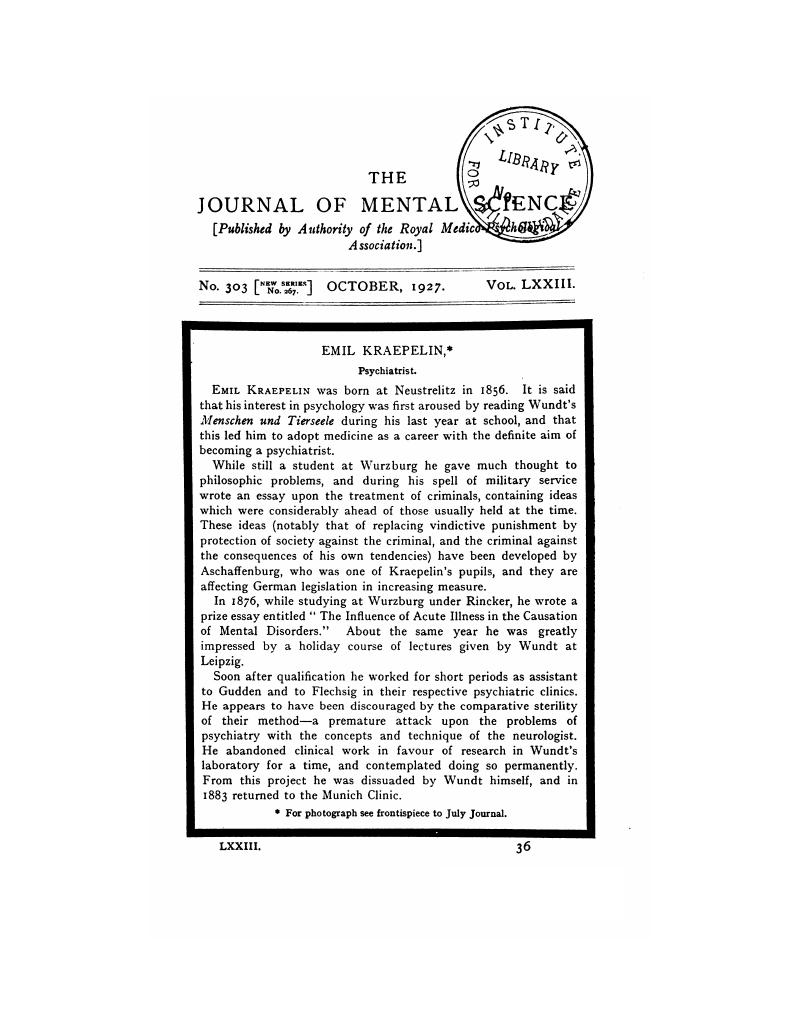No CrossRef data available.
Article contents
Emil Kraepelin
Psychiatrist
Published online by Cambridge University Press: 19 February 2018
Abstract

Information
- Type
- Obituary
- Information
- Copyright
- Copyright © Royal College of Psychiatrists, 1927
References
* And he to me : “If thou follow thy star, thou canst not fail of glorious haven, if I discerned rightly in the fair life : and if I had not died so early seeing heaven so kind to thee, I would have cheered thee in the work.” Google Scholar
* Par., c. xvii, 58–60.Google Scholar
* Hippocratis aphorismorum Paraphrasis poetica, Paris, 1587, by Pierre Boulenger.Google Scholar
* Note.—The word “Divine” was applied to La Commedia long after Dante's death. Dante called this work La Commedia, because he said it begins sadly amid the horrors of the Inferno and ends brightly in the perennial sunshine of Paradise.Google Scholar
† Io dico, sequitando, Inf. c. 8, 1.Google Scholar
‡ See Note (a), p. 170, “Vita di Dante,” where it is related how the first seven cantos were sent on to Dante, then in exile at Lunigiana.Google Scholar
* “Proiicet ampullas et sesquipedalia verba Si curat cor spectandis tetigisse querella.” Ars Poetica, 96.Google Scholar
† Espist., x.Google Scholar
* “Oh weary mantle for eternity.” Google Scholar
* Flee this greedy bank and these cruel lands.Google Scholar
* Pure and disposed to mount to the stars. Purg., c. 33–145.Google Scholar


eLetters
No eLetters have been published for this article.